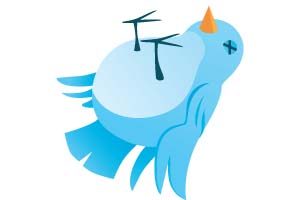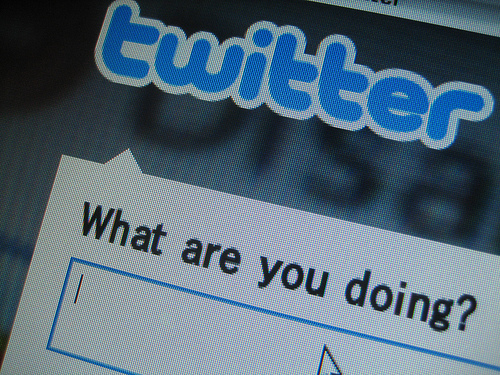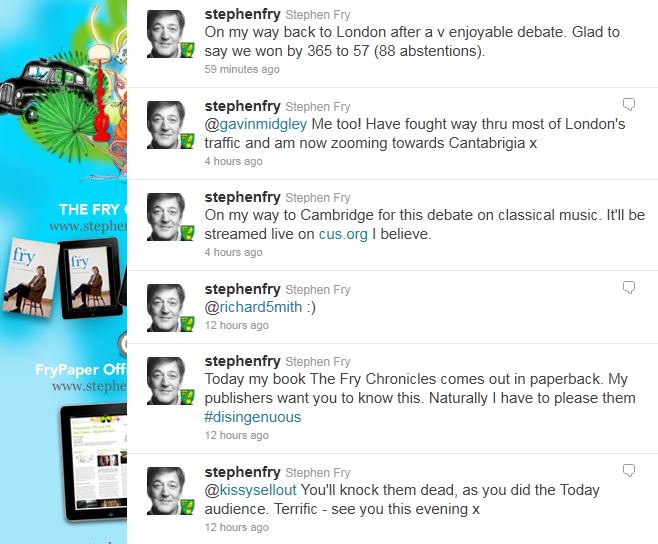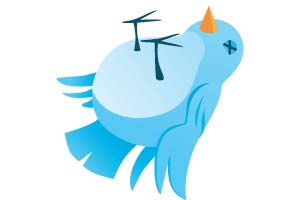Facebook is here to stay - Twitter, however, is not.
Ask yourself: how many times per day do you check Facebook? Do you have mobile device with a Facebook app that keeps you updated on your friends’ activity? It’s okay – I won’t judge you. But now ask yourself this second question: Do you have a Twitter account? If so, how often do you post, and how many people follow you? If your stats on Twitter are low, I wouldn’t worry: Twitter will be gone long before Facebook.
Today on Professionally Incoherent, I’m going to explain why Facebook has carved out a niche for itself in the way we interact, and why Twitter is merely a passing fad. Hit the jump to read on, and share your thoughts on the Twitterverse!
UPDATE (March 2012): For those of you finding this post now, I wrote this article back before I had Twitter myself and before I fully understood it. I've since become kind of addicted to Twitter, so I guess that goes to show how fast opinions about social networks can change. But by all means, read on for the sake of seeing how far I've come in my approach to social media in the past year.
I should preface the body of this article by saying that I do not, in fact, have a Twitter account myself. But being a hard-core media geek, I have a good grasp of how Twitter works, and of the advantages/disadvantages of the site. Considering I don’t have an account, maybe you should call me out on my obvious bias in the comments below – but first read what I have to say about it (I can be very persuasive when juiced up with enough caffeine).
On a number of occasions, I’ve toyed with “getting a Twitter”. The idea that you can share your thoughts with a wider audience than your Facebook friend list was attractive to me (or I wouldn't have this blog). But the sticking point for me always came down to this: the 140-character limit. Your tweets can’t be any longer.
Sure, you can write as many 140-character posts as you want, but I don’t like how that breaks up the flow of what you’re trying to say. Rhetoric becomes fragmented, and it’s a lot easier for someone to lose interest. It’s unlikely someone is going to keep monitoring their Twitter feed for tweet #30 of 34.
If you follow this blog, you might have noticed that I’m a fan of long-form blogging. I like to fully articulate my views in articles that average 800-1000 words. It’s the way I think (I know, I think in essay form. I can’t help it!) If I were to make the jump to Twitter, I might be more visible to people, but my posts would essentially be 140-character “episodes” of what I’m really trying to say.
You may be thinking, “Well, that’s fine for him – he likes to write long posts. I like pithy statements from the people I follow!” True, I’m a freak of nature. (imagine sitting down to read 1000 words in one go – how antiquated!) But it doesn’t just matter how I write – I don’t think Twitter will have the staying power of something like Facebook.
A site like Facebook is a multi-platformed service. It offers Twitter-like posts in your News Feed, an in-house Message service, online games and instant messaging. For some people (sadly) it almost replaces their social interactions entirely. Used more reasonably, Facebook can be a powerful tool for keeping on touch with people and organizing events, even business meetings.
Twitter is far more stripped-down. Posts and photos are thrown out into the ether for people to view and share, but it really doesn’t give you a sense of community. People with large Twitter followings don’t know most of the people commenting on or retweeting their posts. They end up using Facebook for their real conversations, their real online “life”. Facebook will always (barring the invention of another, superior site) be the destination for a more “familiar” experience, that is, connections to people you actually know. Twitter cannot claim a similar level of ubiquity.
I think that unless the people behind Twitter can give the majority of Internet users a really good reason to join, Twitter will eventually go the way of Myspace: a slow and steady decline. People will eventually lose interest in the miscellany of strangers’ lives. I believe that in order for social networking to have some permanence, it needs to have a real-world connection. We are social animals, and without a flesh-and-blood link to the people we’re interacting with, the site will not occupy a long-term niche in our lives.
I expect Twitter will eventually be acquired by a company like Facebook and its internal workings will be built into the parent site. Imagine a version of Facebook where a portion is the Facebook you know, with friend-only access, and another portion is more public, like Twitter. When you write a post, you can choose whether only your friends see it in the private forum, or whether it’s open to the whole Internet. I know, you can already make your Tweets visible to only your followers, but that’s basically a Facebook status update, isn’t it?
Granted, there are exceptions to this. Some Twitter feeds are fantastic sources of up-to-the-minute news or interesting links. But the exception does not prove the rule. A few hundred great feeds don’t justify the overwhelming numbers of Twitter accounts that only broadcast the mundane tidbits of users’ lives. Maybe Twitter will have some short-term importance, like what we saw in this year’s Canadian federal election, but in its current form, it will be a 10-year trifle at most.
What do you think about Twitter? Have you had meaningful social connections on the site? Does it have a future, independent of other sites? Better yet, I challenge you to convince me that I’m wrong – tell me why I should reconsider joining Twitter! Post your thoughts below, and share this around – even post it to your Twitter!
-Check out YouTuber Philip DeFranco's thoughts on Twitter (skip to 3:15 for Twitter comments) -
-See all my articles on Internet-related topics!-







